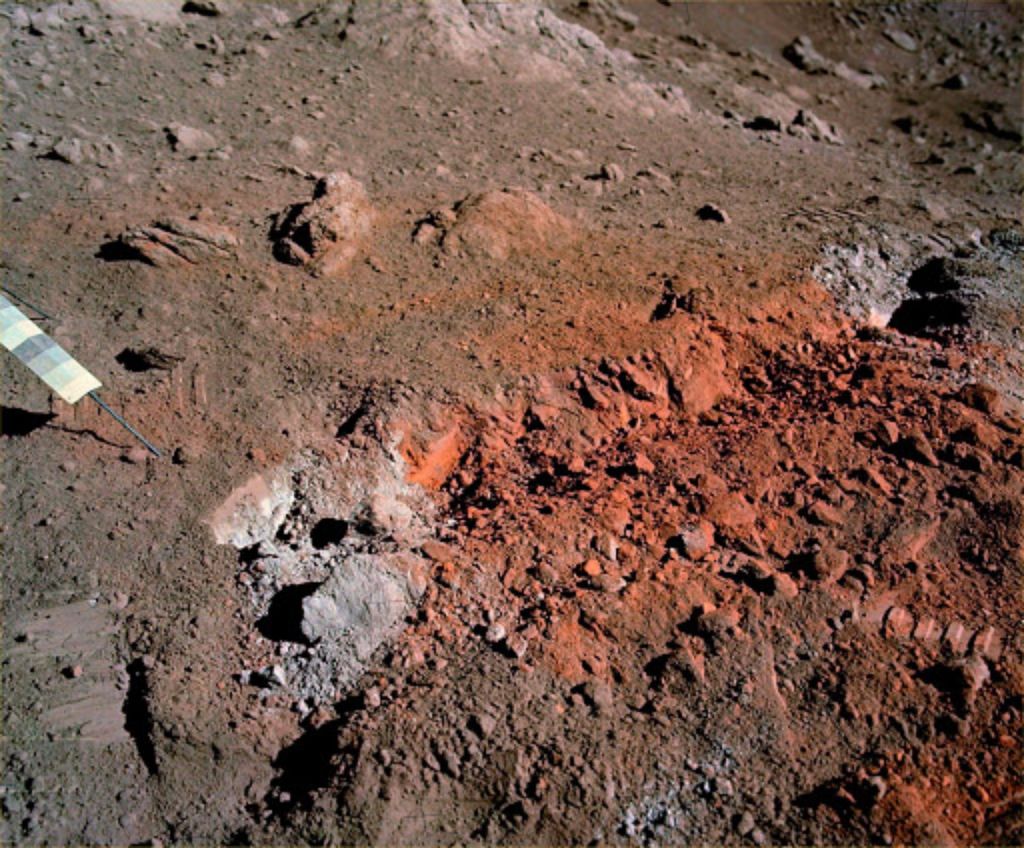Orange Soil
Overview
- Discovered by astronauts Harrison Schmidt and Eugene Cernan during the Apollo 17 mission in 1972
- Location at “Shorty” crater near Taurus-Littrow landing site, between Mare Tranquillitatis and Mare Serenetatis
Geology
- contains particles less than 0.1 millimeters across
- likely created by a volcanic fire fountain — an eruption that likely occurred about 3.64-3.48 billion years ago
- Small drops of molten high-Ti basalt (9-13% TiO2) cooled rapidly into near spherical grains
- The color is due to the high titanium content. At microscopic levels, you can see a mix of the orange crystals and near black olivine crystals
- The fire fountain is a volcanic eruption that spews liquid basalt at ballistic trajectories. The fountain likely occurs as a result of volatile gas build-up as the magma travels to the service.
-
In this case, the volatile gas was likely carbon monoxide (CO), which created the fountain’s explosion, rather like shaking up a can of soda
Photo

This sample is made mostly of orange glass spheres, fractured spheres, partially crystallized glass spheres, and a small admixture of mare basalt fragments. Erupted basaltic liquids formed droplets at the vent, and followed ballistic trajectories to the ground. Those that quenched to glass without nucleating crystals are clear orange, with the color caused by their high titanium content. In over half of these spheres (the wholly or partially black ones) olivine crystals nucleated on the sphere margin and grew inward as blade-shaped crystals. The black color is caused by the crystallization of many tiny ilmenite crystals on the olivine margins (see reflected light photo below). In cross polarized light the glass spheres are black, but you can see birefringent olivine in those which nucleated crystals. Birefringent blocky grains are bits of fragmented mare basalt. Field width is 4 mm. (minerva.union.edu write-up)